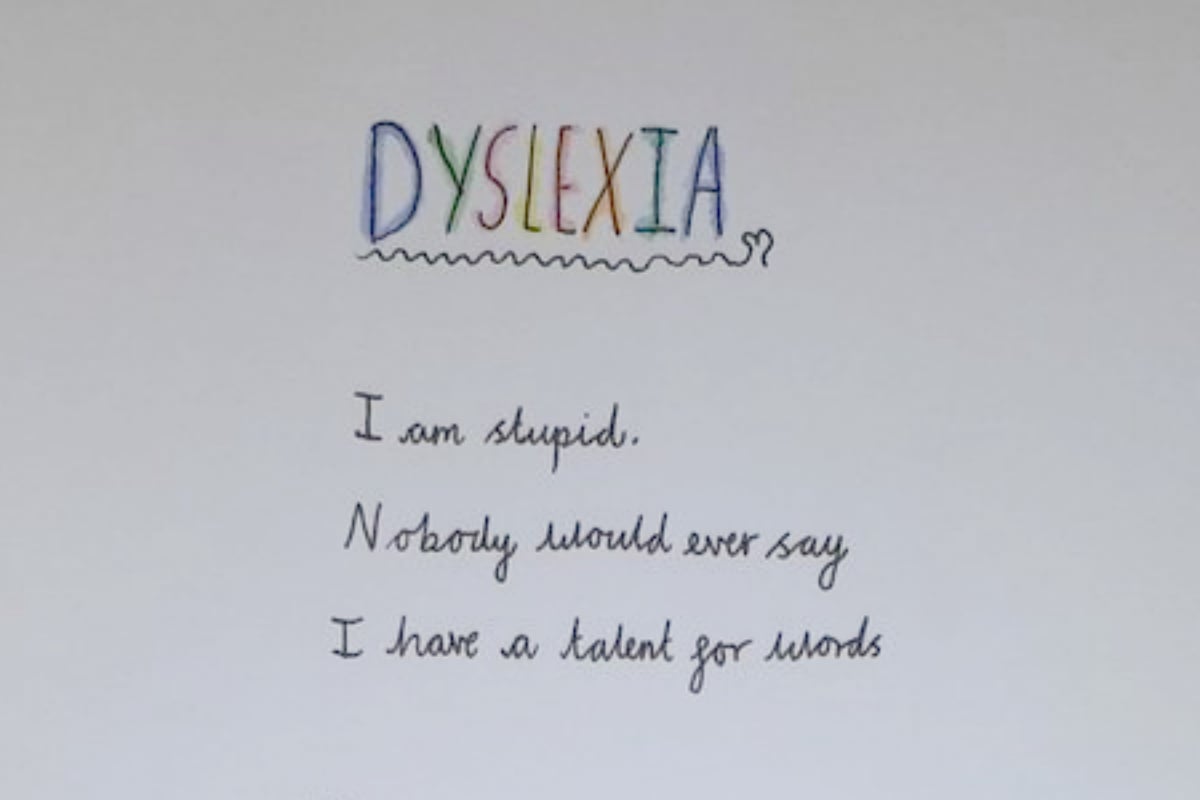
Dyslexia can be a frustrating and self-esteem diminishing condition for those who live with it – especially when it hasn’t been diagnosed.
One 10-year-old girl has managed to sum up the misconceptions surrounding those with dyslexia, as well as the truth, in a powerful and “brilliant” poem.
UK grade six teacher Jane Broadis shared the poem her student wrote, titled ‘Dyslexia’, on Twitter, where it was liked and retweeted by tens of thousands of people.
The poem is a palindrome, which means that it can be read forward or backwards, line by line.
Dyslexia
I am stupid
No one would ever say
I have a talent for wordsI was meant to be great
That is wrong
I am a failureNo one would ever convince me
I can make it in life.Now read up.
Broadis said she was “stunned” by the 10-year-old’s clever way of presenting two perspectives.
The first is a negative view many people living with dyslexia will relate to having held at one time or another. And then, read backwards, it offers a mantra of self-belief.
Today in Y6 we looked at poems that could be read forwards & backwards. I was stunned by this one written by one of my 10 year olds. Please share – I would love her work to be appreciated further afield. I wonder if it could even find a publisher? pic.twitter.com/tmEQpiRrhq
— Jane Broadis (@Jb5Jane) February 27, 2019

Top Comments
LOVE this - would have loved this poem when my kids were younger - so difficult convincing bright kids they are bright because they see the world differently. We soldiered through, and all four of my dyslexic kids have done fine for themselves - 3 university degrees (1 in two languages)- and 2 college (soon to be three)- on top of those! ALL without any help as they had learned to work around their issues and their strengths more than made up for it.
Changing the order of lines is not what is usually understood by a palindrome, which refers to an arrangement of words in which the letters, read backwards, spell out the same words, eg "nurses run" or "was it a cat I saw?". In your use of the term you simply read the lines from bottom to top rather than from top to bottom. They don't say the same thing read up as read down. Silly to call it a palindrome.
it wasn't about whether it was a palindrome or not, you clearly totally missed the entire message of this wonderful poem
I wasn't commenting on the poem but merely on the article's use of the word palindrome to describe it. The message of the poem is an entirely different matter. Try to keep up, will you?